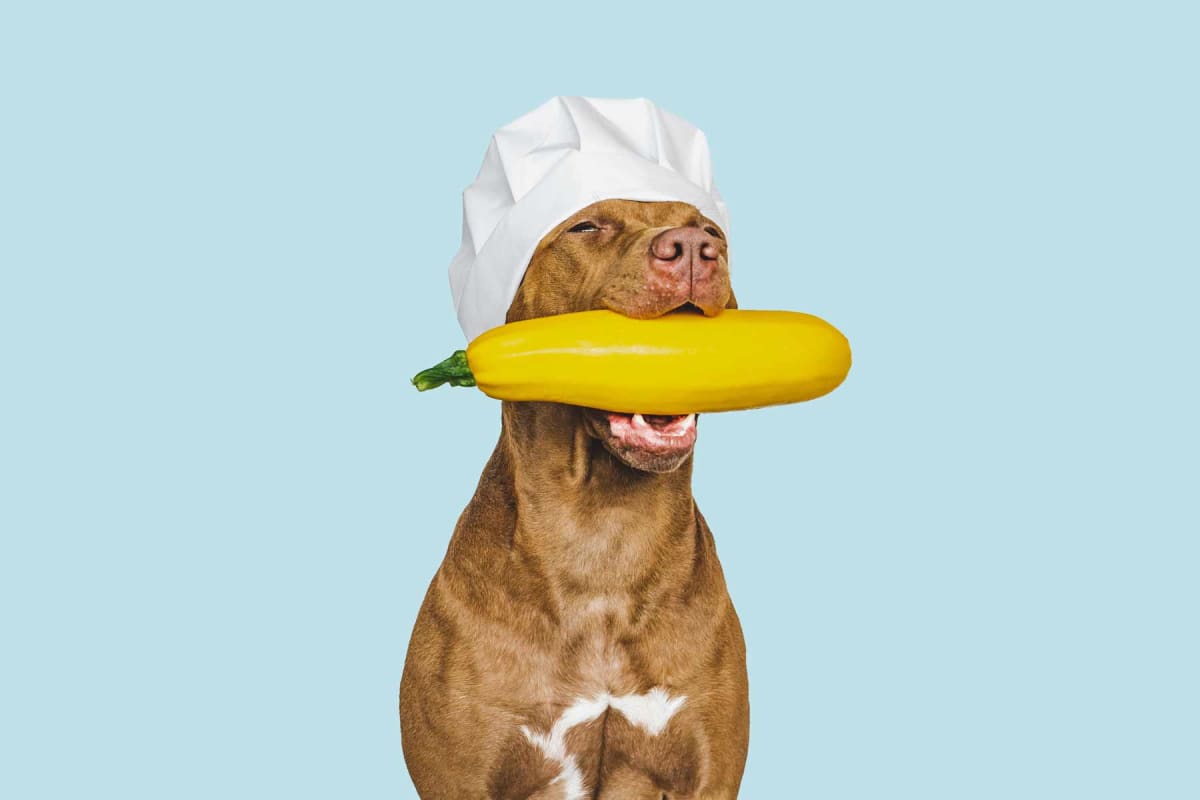
Can dogs eat squash?
Can dogs eat squash?
Can dogs have squash?
Are you wondering if your furry friend can enjoy squash alongside you? Good news! Yes, dogs can eat squash. This colorful, nutritious treat is not only safe for dogs but can be a healthy addition to their diet when prepared properly. Let's explore everything you need to know about feeding this versatile vegetable to your canine companion.
Is squash good for dogs?
Squash is packed with nutrients that can benefit your canine's health in multiple ways. Squash contains vitamins A, C, and B6, which support immune function, vision health, and nervous system functioning. Fiber in squash promotes digestive health and regular bowel movements, and potassium supports heart health and muscle function.
For dogs with sensitive stomachs, squash can be a gentle food that's easy to digest. The high water content in many squash varieties also contributes to hydration, which is always beneficial for your pup.
Can dogs eat butternut squash?
Butternut squash is perfectly safe for dogs and offers excellent nutritional benefits. This winter squash is particularly high in vitamin A, which promotes good vision and immune system health in your canine companion.
Always make sure to cook butternut squash before serving it to your dog. Remove the skin and seeds, as these can be difficult to digest and might cause intestinal blockage if consumed in large amounts.
Can dogs eat spaghetti squash?
Yes, dogs can eat spaghetti squash! This unique squash variety creates string-like strands when cooked, which can be an interesting texture for your dog to enjoy. It is low in calories but high in fiber, making it a good option for dogs who need to manage their weight.
As with other varieties, ensure it's well-cooked and served without seasonings or oils.
Can dogs eat summer squash?
Absolutely! Summer squash varieties, including yellow squash and zucchini, are safe for dogs in moderation. These squashes are nutritious and have high water content, making them excellent for hydration, especially during warmer months.
The soft texture of cooked summer squash makes it easily digestible for most dogs. It can be steamed, boiled, or baked—just make sure it's plain with no added ingredients that might upset your dog's stomach.
Can dogs eat acorn squash?
Acorn squash is another safe winter squash variety for your canine companion. Rich in antioxidants and fiber, it can be a nutritious addition to your dog's diet.
As with other winter squashes, acorn squash should be thoroughly cooked, with seeds and skin removed before serving. The hard skin can be difficult to digest and potentially cause blockages if swallowed.
What about pumpkin?
Yes, dogs can eat pumpkin. Pumpkin is actually one of the best varieties of squash for dogs! Veterinarians often recommend plain, cooked pumpkin (not the sweetened pie filling) for dogs with digestive issues.
Pumpkin is rich in fiber and can help with both diarrhea and constipation. The high water content combined with nutrients makes it particularly beneficial for dogs. Many commercial dog foods even incorporate pumpkin for its health benefits.
How to safely prepare squash for your dog
Preparing squash properly ensures your dog gets maximum benefits without any risks. Follow these guidelines to help squash become a safe and tasty treat for your pup:
Wash the squash thoroughly to remove any pesticides or contaminants.
Remove all seeds and skin—these can cause digestive blockages or irritation.
Cut the squash into small, manageable pieces to prevent choking.
Cook thoroughly by steaming, boiling, or baking without any seasoning, oil, butter, or spices.
Allow the squash to cool completely before serving to avoid burning your dog's mouth.
Never add ingredients like garlic, onions, salt, or butter, as these can be harmful to dogs. Plain squash is best for your canine's digestive system.
How much squash can I give my dog?
Too much of any new food can upset your dog's stomach, even healthy options like squash. For small dogs, start with 1 to 2 teaspoons of cooked squash. Medium-sized dogs can have up to 3 teaspoons, while large dogs might handle up to 3 tablespoons.
Always introduce squash gradually and watch for any digestive upset. Squash should be a supplement to your dog's regular diet, not a replacement for balanced dog food. Treats, including vegetables like squash, should make up no more than 10% of your dog's daily caloric intake.

Other safe foods for dogs
If your dog enjoys squash, they might also appreciate these other vegetables that are safe for dogs:
Carrots (raw or cooked)
Green beans (plain, cooked)
Sweet potatoes (cooked, no skin)
Cucumber slices
Bell peppers
By incorporating squash and other healthy vegetables into your dog's diet occasionally, you're providing extra nutrients and variety that can benefit their overall health and happiness. Just remember—moderation and proper preparation are the keys to making squash a safe, healthy treat for your four-legged friend!